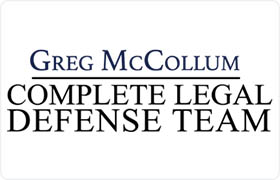Nichols Felony Lawyer, South Carolina
Sponsored Law Firm
-
 x
x

Click For More Info:
-
Greg McCollum Complete Legal Defense Team
1012 38th Avenue North Suite 202 Myrtle Beach, SC 29577» view mapCriminal Defence Law Complete Legal Defense Team
Our goal at the Complete Legal Defense Team is to examine the facts and circumstances completely and help our clients.
800-634-0690
Not enough matches for Nichols Felony lawyer.
Below are all Nichols Criminal lawyers.
Edward W. Whittington
Power of Attorney, Income Tax, Wrongful Termination, DUI-DWI
Status: In Good Standing
Jay Brooks Renfro
Child Custody, Divorce & Family Law, Criminal
Status: In Good Standing Licensed: 24 Years
Marcus LeFond Woodson
Government, Employment, Divorce & Family Law, Criminal
Status: In Good Standing
Michael Edward Suggs
Power of Attorney, Immigration, Child Custody, Criminal
Status: In Good Standing
Elizabeth A. Battle
Traffic, Family Law, Divorce & Family Law, DUI-DWI, Criminal
Status: In Good Standing
Harry S. Allen
Juvenile Law, Wrongful Death, Divorce, Insurance, Nursing Home
Status: In Good Standing
 Greg McCollum Myrtle Beach, SC
Greg McCollum Myrtle Beach, SC AboutGreg McCollum Complete Legal Defense Team
AboutGreg McCollum Complete Legal Defense Team Practice AreasExpertise
Practice AreasExpertise
